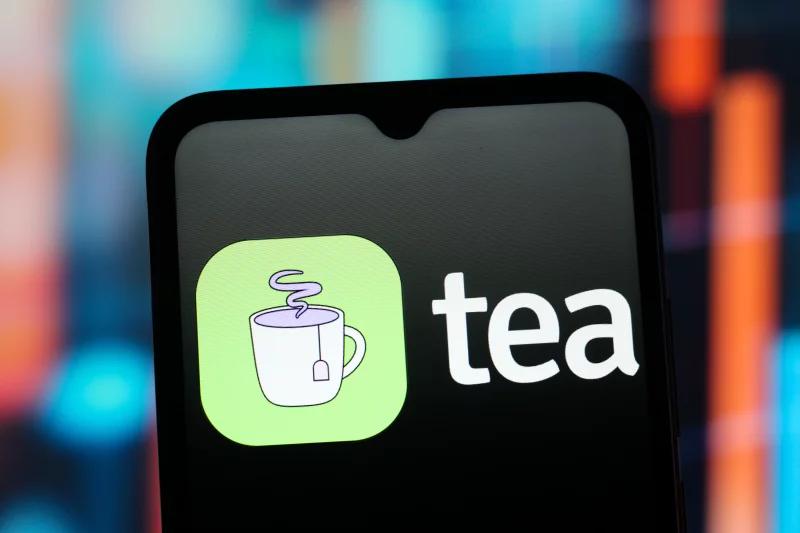|
|
"Without that, you're going to continue to see a whack-a-mole approach that doesn't do enough to protect Americans' privacy."
— University of California Berkeley Senior Fellow Sam Levine on a federal privacy law
|
|
Welcome back to Snippets 👋 Here's what's been happening at the intersection of privacy, AI, and tech:
- The TSA clashed with Congress over a bill that would limit the use of facial recognition in airports
- Silicon Valley has entered its "hard tech" era
- A U.S. Senate subcommittee met to discuss the core tenets of a federal privacy bill
- And so much more!
|
|
|
|
|
TSA clashes with Congress over airport facial recognition
|
 |
|
Francis Chung/POLITICO
|
Senate Republicans are accusing the TSA of quietly sabotaging a bipartisan bill that would rein in the use of facial recognition tech in airports—claiming the agency lobbied behind the scenes to kill the legislation.
|
- The bill would restrict storage of biometric data and require the TSA to clearly inform passengers of their right to opt out of facial recognition scans.
- GOP senators allege that the TSA, led by an acting administrator with ties to facial recognition tech, quietly orchestrated a campaign against the bill using travel industry lobbyists as proxies.
- Despite the setback, lawmakers remain committed to advancing the bill—expressing confidence it will eventually pass.
|
|
|
|
|
|
|
Transcend makes this summer the perfect time to switch 🌞
|
Privacy demands evolve rapidly, pushing businesses to rethink their strategies and platforms. Instead of settling for the broken status quo of manual legacy systems, privacy teams need proven solutions that reduce risk, increase efficiency, and unlock innovation.
At Transcend, we see migration as an opportunity to transform privacy operations and overcome the issues plaguing legacy solutions. That's why we’ve launched our Migration Uplift, helping cut typical migration work down by nearly 60%.
|
|
|
|
|
|
|
|
Silicon Valley has entered its “hard tech” era
|
 |
|
Illustration by Petra Péterffy
|
The “Web 2.0” era, known for consumer apps and cushy tech jobs, is giving way to a new chapter in Silicon Valley: the “hard tech” era—where startups are tackling real-world, high-stakes problems with physical technologies.
|
- In this new era, the skills that matter have shifted: HTML5 and app design have taken a back seat to expertise in GPUs, neural networks, and large language models.
- Politically, Silicon Valley has shifted to the right, driven by a rising “Liberaltarian” ideology that champions deregulation and tech-fueled nationalism—embracing sectors like defense and AI weaponry, while rejecting identity politics and globalist ideals.
- The AI boom is also reversing key pandemic-era trends. While remote work and hiring surged after Covid-19, AI has triggered layoffs at Big Tech and drawn developers back to in-person gatherings to collaborate and compete.
|
|
|
|
|
|
|
|
Senate renews push for federal privacy standard
|
 |
|
|
The U.S. Senate is showing early signs of new efforts to craft a federal privacy law, with a key subcommittee exploring foundational principles to replace the fragmented patchwork of state laws.
|
- The Senate Judiciary Subcommittee on Privacy held its first hearing in over a year, signaling renewed momentum for federal legislation following the stalled American Privacy Rights Act.
- Lawmakers remain divided on major issues like federal preemption, private rights of action, and definitions, but bipartisan interest in consumer data rights is keeping the conversation open.
- Experts point to common state privacy law provisions, like consent for sensitive data collection and processor responsibilities, as potential building blocks for a federal standard.
|
|
|
|
|
|
|
|
- Tech’s trillion dollar AI binge.
- Jury rules Meta violated California privacy law.
- OpenAI removes ChatGPT conversations from Google.
- Researchers design new tool to test privacy awareness.
- 17 privacy apps to end your Google reliance.
|
|
|
|
|
|
White House’s health data sharing plan sparks privacy concerns
|
 |
|
Photographer: Chris Ratcliffe/Bloomberg
|
A new federal initiative to create a “digital health ecosystem” by encouraging patient data-sharing across more than 60 companies is testing the limits of U.S. health privacy laws.
|
- Tech giants like Apple, Amazon, OpenAI, and consumer health apps have joined traditional healthcare providers in a voluntary White House partnership to streamline health data exchange and build AI-powered patient tools.
- Many participating companies fall outside the scope of HIPAA and face a patchwork of overlapping state and federal laws, prompting concerns about uneven accountability and regulatory gaps.
- Legal experts warn that privacy enforcement will hinge on how well companies align their public promises with actual practices, especially under laws like the FTC Act and Washington’s My Health, My Data Act.
|
|
|
|
|
|
|
|
Tea app data breach exposes the risks of digital whisper networks
|
 |
|
SOPA Images/LightRocket via Getty Images
|
The Tea app, designed to let women anonymously share warnings about potential dates, suffered a major data breach that exposed sensitive user information and highlighted the dangers of digital “whisper networks.”
|
- For users who joined before February 2024, the breach exposed driver’s licenses, selfies, direct messages, and metadata that may have revealed their locations.
- The incident has prompted at least two class action lawsuits and raised serious concerns about safety, especially for the app’s 6.2 million female users.
- Tea’s model of anonymous, one-sided accusations mirrors the “whisper networks” (informal systems where women share warnings about unsafe men) that gained traction during the Me Too era.
- But when these networks go digital, they often lose the nuance and trust that make them effective in real life—as anonymity can fuel defamation, retaliation, and broader public shaming.
|
|
|
|
|
|
|
Report: 100% of organizations say consented data is essential for AI innovation 💡
|
|
Download this exclusive report to learn how consent and preference data go beyond compliance to power innovation, accelerate digital transformation, and unlock new revenue streams.
- 100% of executive respondents say consented data enhances their organization’s ability to launch new products and services.
- More than half of executives report being highly reliant on consented data for digital innovation initiatives like personalized marketing, product development, and AI.
- More than 70% of executives say they struggle to proliferate communication preferences across their organization’s entire data ecosystem.
These findings are based on an independent survey of 265 privacy, security, and marketing professionals conducted by UserEvidence and commissioned by Transcend.
|
|
|
|
|
|
|
|
|
Snippets is delivered to your inbox every Thursday morning by Transcend. We're the platform that helps companies put privacy on autopilot by making it easy to encode privacy across an entire tech stack. Learn more.
|
|
|
|
You received this email because you subscribed to Snippets. Did someone forward this email to you? Head over to Transcend to get your very own free subscription! Curated in San Francisco by Transcend.
|
|
|
|
|
|